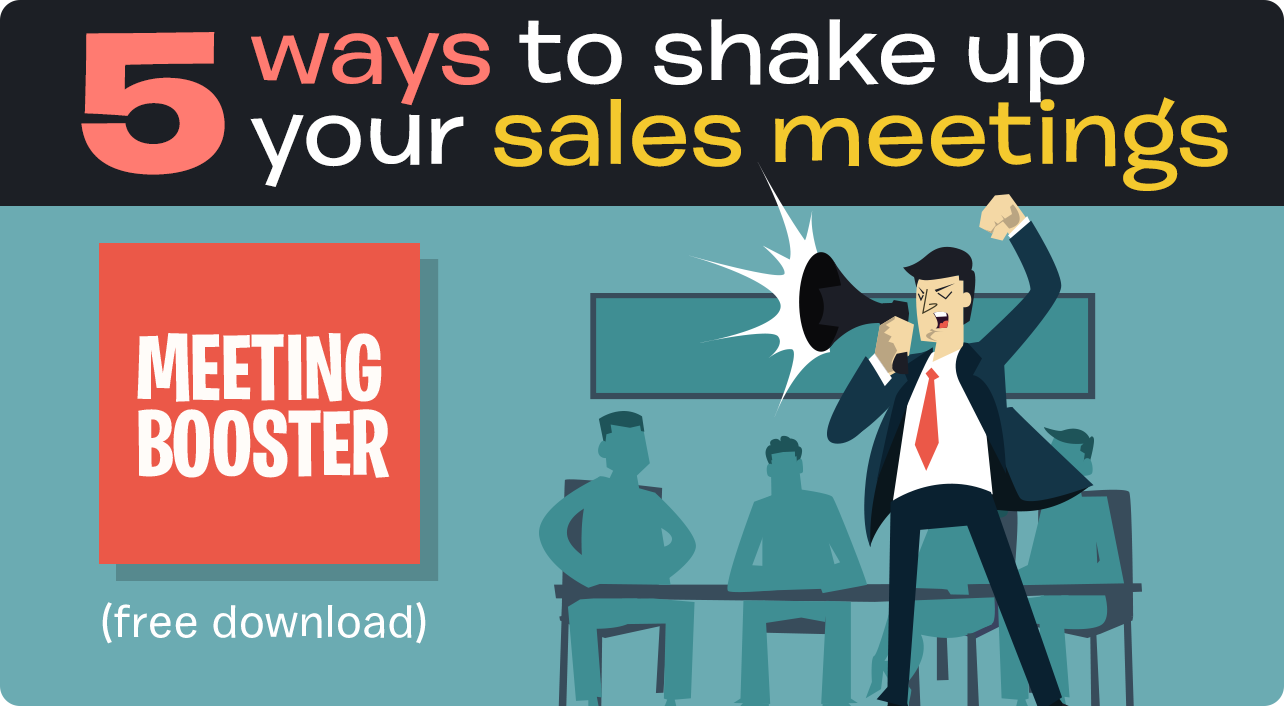- sales
- Blog post
Building rapport with buyers: How the questions you ask can create it – or destroy it
What can salespeople hope to achieve by asking questions of buyers?
The answer may seem blindingly obvious. You ask questions to find out how your buyer’s needs match up with what you’re selling. Unless you know that, your sale isn’t going anywhere.
But beyond this reason, there’s another one — less obvious, but equally powerful: Posing the right kinds of questions actually makes people like you! That’s right, just asking questions can create the rapport salespeople try so hard to build with prospects. But be careful: Asking the wrong kind of question can damage or destroy rapport.
These insights come from research done at Harvard University. The researchers — from the business school, psychology department and social science institute — wanted to investigate whether asking questions had value beyond the exchange of information.
The more the better
The team brought 400 volunteers to a lab and put them into cubicles. Each participant was assigned a partner and they were instructed to get acquainted by chatting for 15 minutes via instant message. One group was told to ask at least nine questions of their partner. The other group had to ask no more than four questions.
Afterward, all the participants were asked how much they “liked” their partner, and how “responsive” they were. The result: The partners in the group that asked a lot of questions were viewed as much more likable and responsive than those in the other group.
But did all the questions asked in the experiment work equally to create responsiveness and likeability? No.
The best kind of question, the researchers found, was the threaded follow-up question where you repeat key words spoken by your conversation partner. For example, suppose that a buyer says, “I’m worried about our unit costs.” Then the salesperson asks, “What effect do unit costs have on your bottom line?” This is highly responsive and contributes to the buyer seeing you as likable.
On the other hand, the researchers found, there’s a kind of question that comes across as highly unresponsive. They called it the “full-switch” question. This is where the questioner takes off on an entirely different tack from what their conversation partner just said.
Playing it out
Let’s see how these kinds of questions might play out in a realistic sales scenario.
Edward, a consulting firm executive, is in his first meeting with Chelsea, who sells enterprise software. So far, Edward thinks, Chelsea has asked good questions about his operations and customer base. Now he wants some information that he considers critical to making any decision to switch suppliers.
“So, Chelsea, tell me about your after-sales support,” he says. “No problem there,” Chelsea replies. “We have an award-winning team. I promise you, they’re the most responsive in the industry.”
Then she says, “Based on conversations with others at your company, I think your most pressing concern is implementation. What’s your time frame for completing the project?”
Edward answers succinctly. Then he says he has a meeting to prepare for, and she can call his assistant to make another appointment. But when Chelsea does call, Edward relays that he’s fully booked. And he never takes her calls again. What happened?
Reasons for unresponsive questions
To be fair, Chelsea did respond to Edward’s question. But she did so with a vague statement about her company’s “award-winning” service. Then she deployed the full switch, asking a question about a completely different topic, implementation.
Chelsea wasn’t intentionally being unresponsive; she wanted to know more about the implementation timeline. But Edward reacted badly because he wasn’t done talking about after sales service. And as the research pointed out, full-switch questions can make you seem unresponsive and unlikable.
There are reasons why sellers might inadvertently ask questions that seem unresponsive:
Anxiety
Even experienced salespeople sometimes get nervous. Instead of listening carefully, they’re thinking about their next question and disconnect with the buyer.
Time constraints
You have a long list of questions you absolutely must have answers to and you pay more attention to your list than to what the buyer is saying.
Lack of preparation
For example, in Chelsea’s case she might not have done her homework and didn’t have a good response to Edward’s comment about after-sale service. So her full-switch question came across as evasive.
Doing it right
What could Chelsea have done to appear responsible and likeable? When Edward mentioned that after-sale support was particularly important to him, Chelsea could have asked a highly responsive question such as, “Help me understand what specific concerns you have about after-sale support?”
If Chelsea had done that throughout the meeting, Edward would have felt that she “got” him – that she was responsive to a deep concern he expressed. Judging by the research study, he would have come away feeling that she was likable, and the kind of salesperson he wanted to see again.
What can we conclude from all this? Asking responsive questions can build rapport and make you appear more likable to buyers, increasing your chances of winning a sale. But if you ask questions that make you seem unresponsive – an extreme example is the “full switch” – buyers could perceive you as unlikable and take their business elsewhere.
This blog entry is adapted from the Rapid Learning module “Relationship building: How questions can create – or destroy – rapport.” If you’re a Rapid Learning customer, you can watch the video here. If you’re not, but would like to see this video (or any of our other programs), request a demo and we’ll get you access.
The blog post and Rapid Learning video module are based on the following research study: “It Doesn’t Hurt to Ask: Question-Asking Increases Liking,” Huang et al., Journal of Personality and Social Psychology, 2017, Vol. 113, No. 3, 430-452.

Get a demo of all our training features
Connect with an expert for a one-on-one demonstration of how BTS Total Access can help develop your team.




1 Comment
It’s funny that what’s old is now new again. I was trained in Active Listening in 1973 and it’s one of the most valuable selling skills, but so difficult to master. Good reminder.